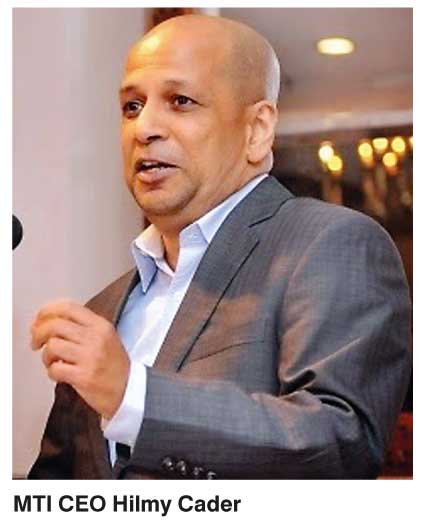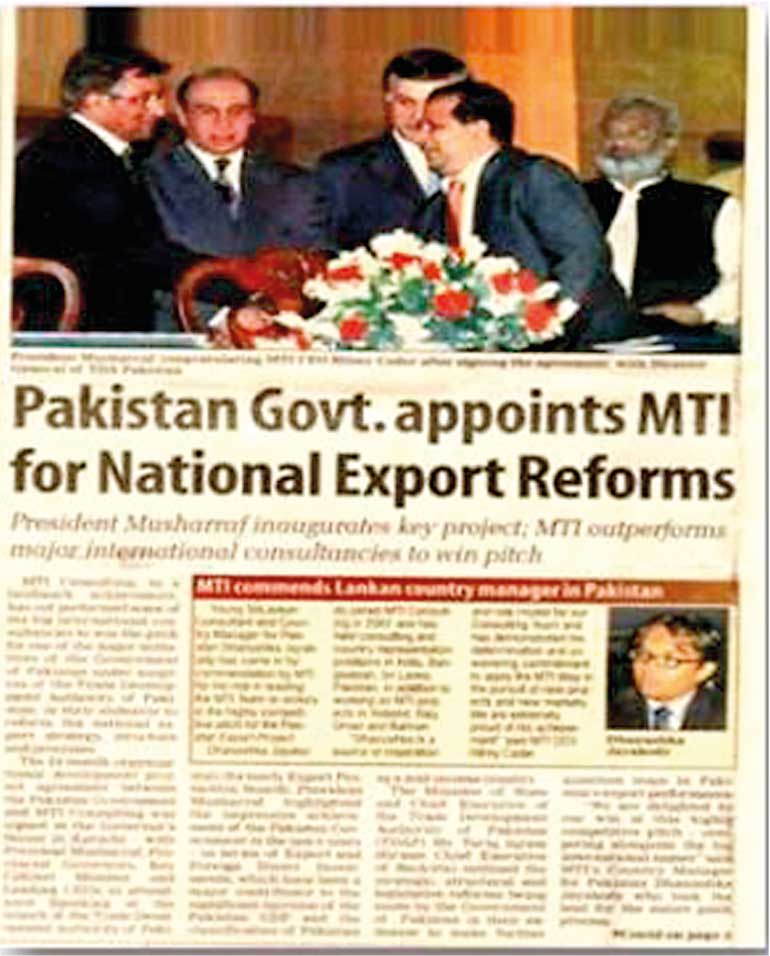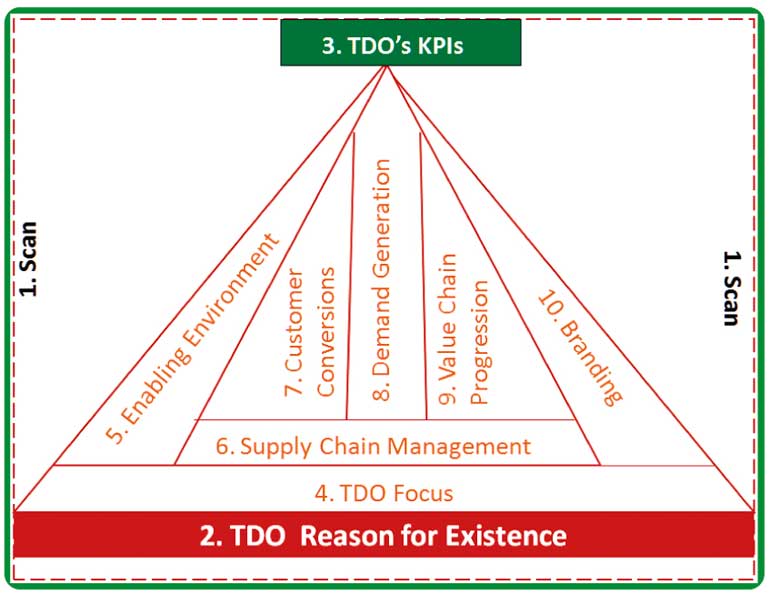Monday Feb 16, 2026
Monday Feb 16, 2026
Tuesday, 18 October 2016 00:01 - - {{hitsCtrl.values.hits}}
MTI Consulting, with international trade consulting experience across 43 countries in the last 20 years, has opined that developing economies like Sri Lanka need a radical mindset change from the concept of exports to being an integral part of international supply chains.
“The very word ‘ex-ports’ and its practise in markets like Sri Lanka, means the focus is on getting it off your ports! This is not what the international demand chains are demanding today and to be a profitably integral part of the enabling supply chains (to these demand chains) requires a truly global mindset and cross-border collaborations, not an insular mentality,” said MTI’s CEO Hilmy Cader.
Over the 10 years up to 2015, Sri Lanka’s total exports have grown only by 7% (CAGR). During the same period, apparel grew by 5%, tea by 8% and rubber by 12% (all in CAGR terms). Statistically, ICT has recorded an impressive 23% CAGR, but this is from a  low base and is based on a sample survey to establish the export revenue.
low base and is based on a sample survey to establish the export revenue.
These top sectors have continued to contribute as much as 70% of Sri Lanka’s exports. With the exception of the apparel sector and solid tires, the supply chain in particular and the demand chain for other sectors are highly fragmented, with most businesses being unable to scale up their operations.
This fact has been proven by the 3,700 plus Sri Lankan exporters who export in over 30 diverse product categories. The share of branded and high tech exports as a percentage of Sri Lanka’s total exports is at a very low level, even when compared to relevant emerging Asian competitors. The extremely low expenditure on R&D (as a nation) could be a contributory factor.
 Flashback 2008 – MTI, competing against some of the world’s top management consultancies, won the pitch and successfully concluded a high level strategising assignment for the Government of Pakistan, a project that was signed and monitored from the then Pakistan President’s office
Flashback 2008 – MTI, competing against some of the world’s top management consultancies, won the pitch and successfully concluded a high level strategising assignment for the Government of Pakistan, a project that was signed and monitored from the then Pakistan President’s office
Every nation depends on certain ‘base capabilities’ to drive export growth and economic development. Assessing the world’s top exporters (for the different sectors) demonstrates one or more of these essential ‘base’ capabilities. These capabilities are the ‘platforms’ or ‘drivers’ on which nations enable profitable export industries.
On what ‘platform’ are we? What base capabilities do we possess? What do we offer currently and what other capabilities can we build, develop or groom to offer the world?

In Sri Lanka, MTI was selected to develop and deliver the EDB’s strategic plan in 2014-2015 and previously in 2002
Trade Promotion Organizations (TPOs) have been used by Governments to promote exports. But we are now seeing a transition from trade promotion to trade development, hence the birth of TDOs, which are expected to play a catalyst role by working through and working with a multitude of other organisations, with the final intent of enhancing the country’s exports. Based on MTI’s research and experience, the following are 10 aspects at which a TDO must succeed in order to be effective.
lScan: A TDO needs to be aware of its business environment and the changes that are happening in that very environment. A thorough evaluation needs to be carried out.
lReason for existence: Internal stakeholders need to be made aware of why the TDO exists. They also should be made to understand why the Government is funding them.
lKPIs: Criteria for the evaluation of the TDO’s performance need to be agreed upon.
lPrioritisation and focus: Priorities in terms of industries, export markets, regions and value chain functions should be decided and key personnel should be briefed.
lEnabling environment: The TDO will not be able to influence everything. All aspects out of the TDO’s control which will have a major impact on exports need to be identified and action plans need to be devised so that internal stakeholders know how to deal with them.
lSupply chain management: A strategy must be designed so that exporters and the industry have the capability to deliver potential demand.
lCustomer conversion: A strategy should be set in place to convert potential customers (importers).
lDemand generation: Strategies need to be arrived at to ensure ongoing demand for exports.
lValue chain progression: The TDO needs to actively keep tabs on whether exporters progress along the value chain and take measures to encourage them to do so.
lBranding: An effective branding strategy which deals with how to brand the country, the industry, the product, the exporter, the exporter’s brand or the TDO must be created and executed to perfection.
MTI Consulting is an internationally-networked, boutique management consultancy enabling its clients to ‘Analyze > Strategize > Realize’ profitable business opportunities. Practices include Strategy, Business Operations, Corporate Finance, Talent and Resourcing, Go-to-Market and Tech-Advisory.
Since its inception in 1997, MTI has worked on over 520 assignments in over 43 countries, covering a diverse range of industries, clients and business challenges. Its team comprises a multinational pool of strategists, analysts, researchers, industry specialists and functional specialists. MTI has been at the cutting-edge of thought leadership on strategy, having presented at over 150 conferences around the world.